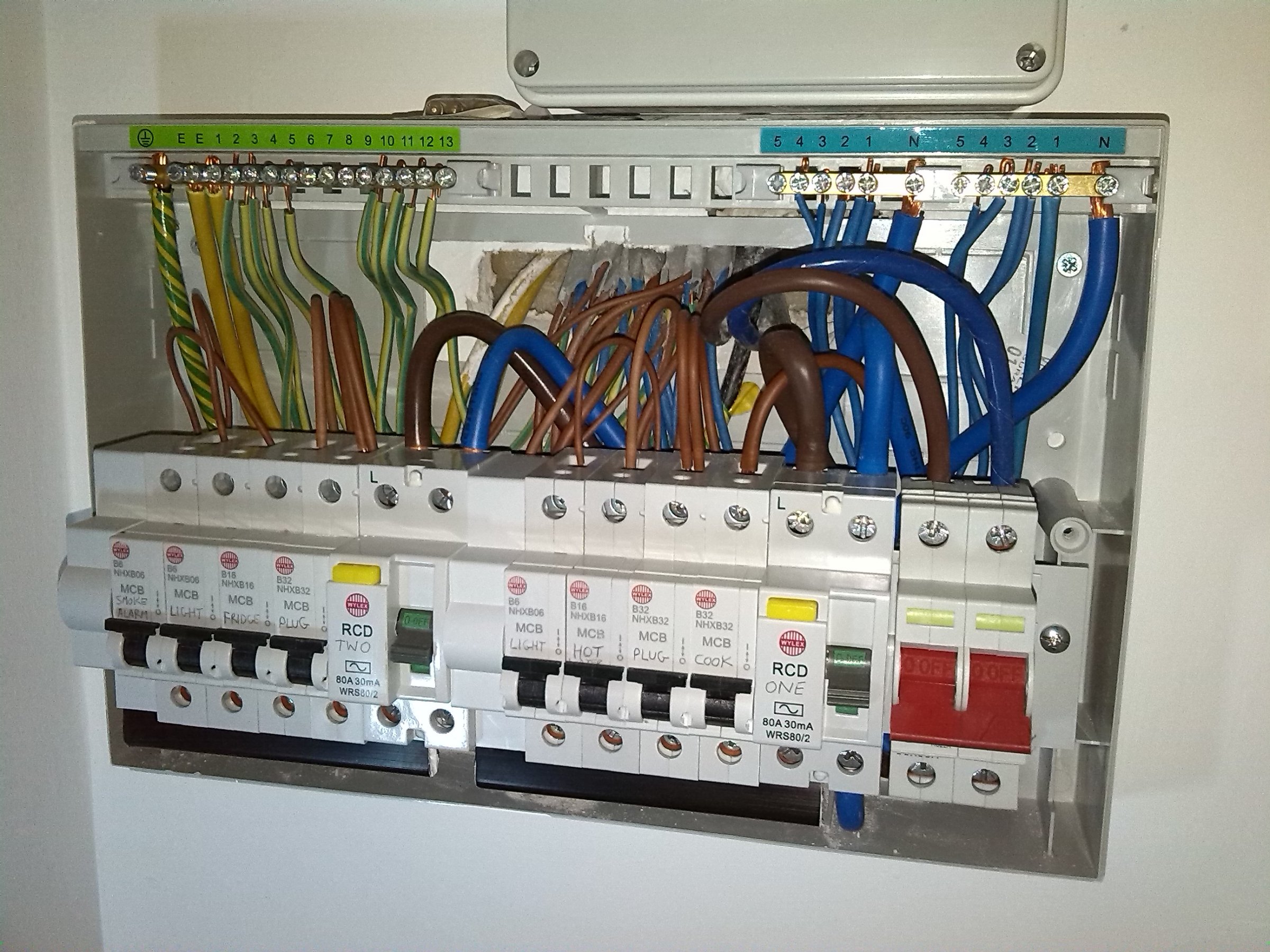My personal view is that what you are saying is totally sensible/practical. However, a good few people seem to interpret the regs as requiring lighting to be split across two or more circuits (in terms of both over-current and residual current protection).Yes, I know - so could an MCB - but how far do people want to go? Are you saying that the lighting circuit must be split and glass doors be fitted? ... I don't know what you want me to say.I realise that but, particularly give that you're talking about an RCBO, a dying lamp could take out all the lighting - whether one was cooking, showering, watching TV or whatever.
Kind Regards, John



